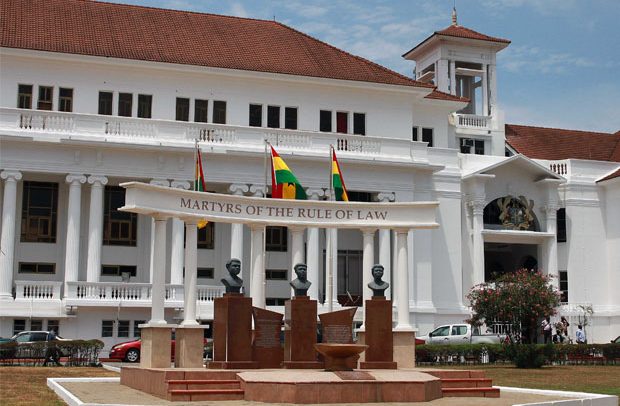The Supreme Court (SC) has deferred its decisions on two separate applications seeking to restrain Parliament from transmitting the Human Sexual Rights and Family Values Bill, commonly referred to as the Anti-LGBTQ Bill, to the President for possible assent into law.
A five-member panel of the court presided over by Chief Justice Gertrude Torkornoo said it will be proper to give a comprehensive decision on the substantive suit rather than dwelling on controversial matters raised in the interlocutory applications.
The court has, therefore, adjourned the two applications indefinitely to await the outcome of the substantive suits filed before the court.
Suits
Dr. Amanda Odoi and broadcast journalist Richard Dela Sky have filed two separate suits before the court challenging the constitutionality of the bill passed by Parliament in February this year.
They both attached applications for interlocutory injunction pending the final determination of the suits, arguing primarily on ground that consideration was not given to the financial implication of the bill on the Consolidated Fund and the public purse.
Richard Sky, in his suit, is challenging the constitutionality of the processes leading to the passage of the bill and argues that it also infringes on human rights provided by the 1992 Constitution.
Bill
Parliament on February 28, 2024 passed the Proper Human Sexual Rights and Ghanaian Family Values Bill, often referred to as the Anti-LGBTQ+ Bill, which introduced further punishment for gay activities in the country.
The bill, among other things, advocates prison terms for those who take part in LGBTQ sexual acts, as well as those who promote the rights of gay, lesbian or other non-conventional sexual or gender identities in Ghana.
The bill is yet to be transmitted to the President for a possible assent as a result of the two suit filed before the Supreme Court.
Applications
Dr. Ernest Ackon, counsel for Dr. Odoi, had argued that the bill was not introduced by or on behalf of the President but is a private members bill.
He said per Article 108 of the 1992 Constitution, Parliament should not have proceed with such a bill if it imposes financial obligation on the Consolidated Fund or other public funds.
Paa Kwesi Abaidoo, counsel for Richard Sky, on his part argued that the Speaker breached the constitution when he admitted the bill in the first place, and added that but for the pendency of the suit the President would or is at liberty to assent to it to become a law.
The Attorney General and Minister for Justice, Godfred Yeboah Dame, stated he was neither in support of the interlocutory application nor against them, but urged the court to consider the issues of constitutional breaches raised.
He said the constitution itself sets out matters that Parliament is prohibited from considering, and in so far as there is payment or withdrawals from Consolidated Fund, the Speaker ought to have had recourse to the provisions of Article 108 of the Constitution.
Thaddeus Sory, counsel for Parliament and the Speaker, opposed the applications and argued that the work of Parliament was not yet complete as the transmission of the bill to the President is also part of that process.
He said the applications before the court are similar to the previous one which was dismissed by the court in July 2023, noting that the only difference in it is that they are seeking to restrain a different stage of the process.
Mr. Dame further pointed out that there was no basis for Parliament to proceed because there was no fiscal impact analysis attached to the bill and such an omission cannot be cured by the President presenting the bill back to Parliament, stressing that what it means is that the nation would have to live with that unconstitutionality, which is a huge scar on the country.
Decision
The court, presided over by Chief Justice Gertrude Torkornoo and assisted by Justices Mariama Owusu, Henrietta Mensa-Bonsu, Ernest Gaewu and Yaw Darko Asare, deferred the decisions on both applications until final determination of the substantive suit.
He said the presentation that processes necessary for the substantive suit are being filed bolsters its decision to consider both the interlocutory application and the substantive suit together.
This, the court said, will enable it to “deliver a more informed, comprehensive and just decision that accounts for all relevant circumstances and factors in this important matter.”
“Such a unified approach will further provide context and clarity and also afford a clearer understanding of the issues raised in this interlocutory matter and their impact on the substantive suit,” the court added.
BY Gibril Abdul Razak


